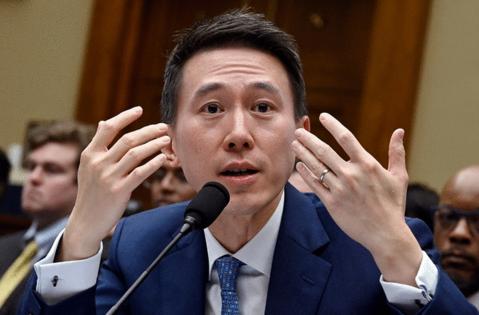The US might ban TikTok. Record labels are cutting ties. What's music's Plan B?
Published in Science & Technology News
LOS ANGELES — In November 2022, Isimeme Udu uploaded the song that changed her life. The singer, who performs as Hemlocke Springs, was stressing about her medical studies at Dartmouth when she dropped her synth-pop track "Girlfriend" onto TikTok. Its lo-fi élan immediately found an audience.
Within hours, Grimes commented with high praise, and fans clamored for the new "awkward Black girl anthem," as many described it. Millions of plays later, Udu finished her degree and became a touring sensation — she opened for Muna at the Greek Theatre and, this summer, will open Doja Cat's European arena tour.
"When it came to music, I thought it was just unattainable," Udu said. "People talk about getting a foot in the door, but I didn't even know what the door was. Days later, people were stopping me on campus asking 'Are you Hemlocke?' "
Udu is grateful for the opportunity the app offered. "I've been so lucky to meet so many cool people who I never thought would know me," she said. "But that can't be at the expense of doing the thing that made you popular. I had a viral moment, but I had to say, 'Don't lose yourself, because that's only going to be temporary.' "
She was right. TikTok's status as music's hit-making force suddenly looks less certain.
In February, Universal Music Group, the largest record label conglomerate in the world, pulled its catalog from TikTok. Videos using music from Taylor Swift or Bad Bunny suddenly fell silent. After a contentious U.S. House Committee on Energy and Commerce hearing about ByteDance, the app's Chinese parent firm, and its potential risks for data security and political influence, the House overwhelmingly passed a bill in March that could force a sale or ban TikTok (President Joe Biden has said he's open to signing that bill). The Senate has held closed-door meeting on the topic, and TikTok urged its users to contact Congress to protest.
Representatives for TikTok declined to make executives available for an interview. But given the existential threats to the app, musicians are wondering whether they need a Plan B.
"I didn't start out with connections, and that moment opened up everything for me," Udu said. "But music is why I'm here. I'm not a TikTok personality."
TikTok began life as Musical.ly, an app to film oneself lip-syncing to songs. Interacting with pop music was a core function of TikTok. Fans and artists shared music they loved, grafting it onto videos showing their lives and ideas. It was a lifeline to friends and culture during the pandemic.
Though the app is now a source of infinite types of content made by a billion users, countless songs — from Fleetwood Mac's "Dreams" to Kylie Minogue's "Padam Padam" — found new life there. In a new report, TikTok said that 56% of users began listening to a new musician or podcast after watching a TikTok video.
...continued
©2024 Los Angeles Times. Visit at latimes.com. Distributed by Tribune Content Agency, LLC.







Comments